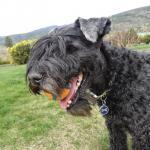-
Welcome to the eG Forums, a service of the eGullet Society for Culinary Arts & Letters. The Society is a 501(c)3 not-for-profit organization dedicated to the advancement of the culinary arts. These advertising-free forums are provided free of charge through donations from Society members. Anyone may read the forums, but to post you must create a free account.
The Food Lab: Better Home Cooking Through Science by J. Kenji Lopez-Alt
-
Similar Content
-
- 93 replies
- 6,822 views
-
- 226 replies
- 18,521 views
-
- 24 replies
- 4,269 views
-
- 375 replies
- 60,032 views
-
- 38 replies
- 2,694 views
-
-
Recently Browsing 0 members
- No registered users viewing this page.






Recommended Posts